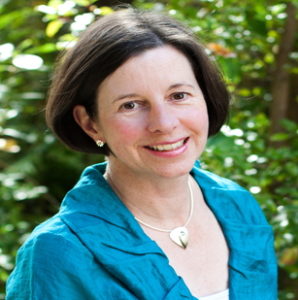03 Sep Carolyn Watts
7 September 2020
Carolyn Watts is a public health consultant. She chairs the board of The Common Unity Project.
My segue into public health came from a deep interest and passion in research. I first trained as a dietitian and worked as a paediatric dietitian for several years, I loved working with families.
Then I went on my OE to London. I had that great Kiwi delusion that I could do anything, and I ended up with a couple of really interesting part-time research positions. One was working with a group of psychologists looking at eating behaviour predictors in children, and the other was working with a medical professor who had done a lot of work in obesity, looking at the efficacy of different types of diets. That was my introduction to the wider causes of health conditions, particularly the role they played in children’s eating behaviour.

When I came back to New Zealand, I took on a research role at the Ministry of Health, then moved sideways to work for the Cancer Society. I didn’t know anything about health promotion at the time, but I loved that work and the ability to influence some of the determinants of health. After I’d been there for about four years, Rob Quigley and I formed our consultancy, Quigley and Watts, which is centred in public health. Our work supports wellbeing in lots of different ways. Some of the most interesting work has happened when we’ve been working with other organisations outside of the health sector.
The terms ‘public health’ and ‘health promotion’ are misunderstood and both need a rebrand. Rob and I used to say that we were ‘public health specialists’, but we found that that limited people’s thoughts about why they might work with us. People who work in this area have a broad range of skills that are applicable across a wide range of areas, but when most people hear ‘public health’ they think of the physical health system, such as hospitals and primary health care. Really, what we do is work to support community wellbeing.
One of the most satisfying projects I’ve been involved in is Common Unity. Initially I was just asked to help them out by evaluating an initiative, fast forward a few years and I’m currently chairing the board. Common Unity has taught me that you can never know exactly how things will play out; it’s about letting things emerge, and having strong positive relationships that enable you to maximise what’s possible. It’s about accepting that the people who come to the table are the right people.
Each community has its own version of something like Common Unity. There are amazing champions and community leaders everywhere, it’s just a matter of getting in behind them and seeing what you can offer. You need to be prepared to get alongside the people in your community and learn a huge amount. It pushes me right to the edge of my comfort zone, because this way of working is new for me. I am used to working with other organisations who do things in a planned way. It can be very uncomfortable, but I’ve learned that you have to let go and realise that’s where the magic happens, that the answers we are looking for are not solely the territory of inter-agency work. Communities have their own answers if you ask them how they want to do things.
At Common Unity we have a real mix of things going on, but it always comes back to the connection between people. When we leave our organisational hats to one side, and be people first, that’s when we can think more adaptively and respond more quickly. That’s the power of not having too much of a set plan at the start.
If you care about fairness and you’re interested in making a long-term difference, public health a good area to get into. I’d love to see more people from different backgrounds coming into it. You find public health champions in the most interesting places; they can be prison officers, school principals, business owners, any one. I’d love to see us getting wiser about how we work – I’d love us to appreciate academic evidence in the context of community wisdom. We need to reach out beyond the people we would normally gravitate towards. Everyone has something to offer, sometimes you just need to step back and let it unfold.

